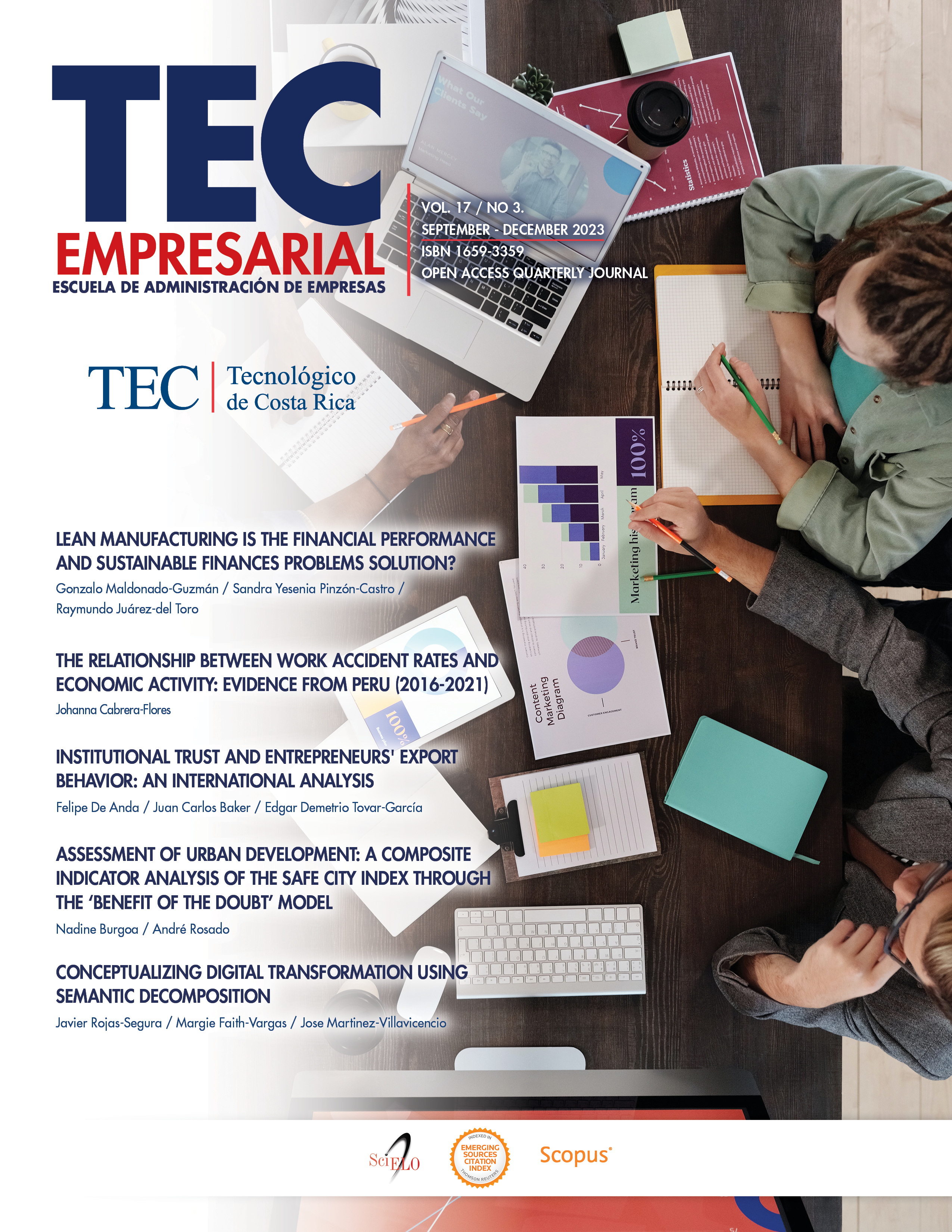Institutional trust and entrepreneurs' export behavior: An international analysis
Main Article Content
Abstract
The main goal of this research is to test the association between trust in institutions—e.g., police, law courts, property rights, government regulations, and public and private organizations—and entrepreneurial internationalization. The longitudinal analysis uses data obtained from the Global Entrepreneurship Monitor (GEM), the Heritage Foundation Index of Economic Freedom (IEF), World Bank Worldwide Governance Indicators (WGI), and World Development Indicators (WDI) for a sample of 88 countries during 2013-2018. Using factor analysis and panel data techniques that control for potential endogeneity, institutional trust is found to be significantly correlated with internationalization; however, this result is only valid for small and medium-sized enterprises (SMEs) in developing countries. Therefore, entrepreneurs from developing economies have to overcome the lack of institutional trust to successfully carry out their internationalization process.
Article Details
The digital version of the journal is registered under the BY-NC-ND 4.0 Creative Commons license. Therefore, this work may be copy and redistribute the material in any medium or format, as long as you give appropriate credit, provide a link to the license, and indicate if changes were made. You may do so in any reasonable manner, but not in any way that suggests the licensor endorses you or your use.
The authors keep the copyright and give the journal the right of the first publication and the possibility of editing, reproducing, distributing, exhibiting and communicating in the country and abroad through printed and electronic means. On the other hand, the author declares to assume the commitment on any litigation or claim related to the rights of intellectual property, exonerating of responsibility to the Business School of the Costa Rica Institute of Technology.


